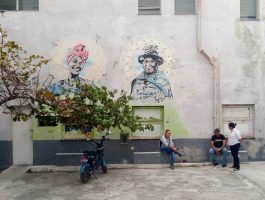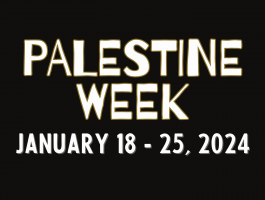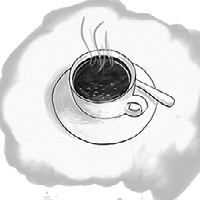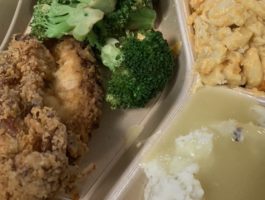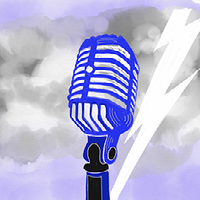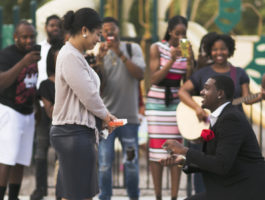Oxygen please or more Dawa wisdom
After leaving the monastery I ask Dawa. How do you keep from slipping on these rocks. Dawa says. The foot has two parts. The thinker. And the doer. The thinker is the ball of the foot. The front of the foot. It senses things and can quickly adjust. It is what you use first when coming down a steep incline. The doer is the heel. It just takes the load.
He continues. Some rocks are your friends. Some are there to trick you and hurt you. They look friendly but their looks are deceiving. Sometimes these rocks cover themselves with shiny sand to hide their intentions. Your thinking foot knows the difference. Use it first and you won’t fall.
Soon Dengboche appears. It is the center of trade in this region. It looks like most other villages along the trail. Just bigger. The same pink and blue roofs. The same stacked tea houses against giant mountain backdrops.
The quaintness of these villages has evaporated since I started. Once inside you see what’s beneath the pink and blue roofs. These villages are not postcards. They’re not fairytales. Life is hard here. Very hard. And since the pandemic. It has been catastrophic.
I encounter a family of 3 along the trek. Two women and a man. I stop next to them to take in the view ahead. They’re resting. The man asks with a smile flashing his gold tooth. His face is leathery and gaunt. Where are you from. America. I say. Where in America. Washington DC. Welcome. He says. His smile widens. The women are carrying large covered baskets behind their back with a thick strap across the top of their head. Their faces are flush and their smiles are generous. The man continues. We have to walk over 3 hours to just get vegetables once a week. I ask him why he stays here. He tells me that he was born here. His father was born here. They have a tea house in their village and he runs it. I say you have a beautiful country. Pointing to the Ama Dablam with its snow covered egg shaped peak. That’s why we stay. He says. The women heave the baskets and the three disappear.
Women do most of the house work here. They do the heavy lifting. Literally. Imagine just having to heat water. For bathing. For tea. For cooking. You carry a large heavy cast iron kettle. Walk to the nearby spring. Fill it up. Bring it back. Place it on a rigged solar panel heater. Adjust it to point directly at the sun. One hour later water is ready. Pour it into thermoses. Repeat. All day long. And that’s just to heat water.
Everest Base Camp #17The Dengboche Resort sits in a commanding place above the city. Its pink roof can be seen from several km. As we approach the village entrance, my oxygen deprivation intensifies. My feet have turned to lead. My heart is racing. And my lungs are barely keeping up. I am getting a slight headache.
The owner for this place hardly cracks a smile. And for good reason. He had built this tea house using up the entire family fortune. Then, the pandemic. And the world stops. Trekkers stop coming. It’s been a year and we are the first customers along with a handful of others he has seen. There is no wifi. No running water. Just a wash basin that you have to carry from the kitchen. A bed. A blanket. And a communal toilet. I am not being a diva here. But I am oxygen deprived and I need a teeny bit of pampering. And this place is not providing it.
Dawa tells me that the top 4 things that trekkers want are. WiFi. Pizza. Apple pie. Hot shower. In that order. This place had none of those. I can even forgo all of this for a little space heater in my room.
It is 7 at night. I scrape the ice off the window in my room. Snow has blanketed the potato fields below. My wheezing is intensifying. My appetite is gone. Just the thought of ramen or Dal Bhat points me to the toilet. I am propped up in my bed under two blankets up to my neck. I am shivering. My breathing is shallow. I take deep prolonged breaths that don’t satisfy. Panic is trying to wedge its way beside me. I stand up. Standing helps. I have to control the panic. Panic will only makes things worse. I take a sip of water. It feels like drowning. I need to hydrate. I take smaller sips. I imagine myself a fish being caught in a net and unable to break free. I’ll think twice about eating wild salmon again. If I live to see that day. And I begin to straddle the thin line where my mind and my body are no longer on the same team.
From my room, I can hear people in the dining room. I can hear their laughter and conversations. I am envious. I get up. Put on my slippers and join them. Maybe that will help. This is the first tea house that I have been to that has had any business to speak of.
Huddled around the fire stove fueled by yak dung, is a group of Nepali friends on vacation doing the EBC trail. This is the only source of heat in the place. Yaks rule here. They use them for transporting goods. Milk and cheese. They use their meat. Their long hair. And their dung.
In the huddle there is an Austrian couple who stood out more than me. They were the center of attention. They were somewhere in their later 50’s early 60’s. The wife’s voice carried the room. She immediately honed in on me. And it was a non stop interrogation going forward. Where are you from? What brings you here? What do you think of American politics? Covid? Trump? You name it. The husband just nodded and smiled. I just wanted to get warm and breath.
It is 9. I am tired now. I go to bed and try to get some sleep. My breathing is strained again. Putting the blanket over my head makes it worse. My feet are numb. The room is dark. I smell like a wet yak. And my mind is playing a loop that doesn’t end well. I change my mental slide show. I am not going to die. Morning will come. Things will be different. I am dreaming while awake. About my comfortable bed in my hotel in Kathmandu. My wife lying next to me back in DC. My kids. My family. My co-workers. My mother who was quite upset at me taking this trek. She would be at my funeral saying, I told him not to go. I told him not to go. The slide show continues all night long. I consider waking up Dawa. I resist. I’m a grown up. Get your shit together.
I am at 14,668 feet above sea level. My final destination is about 2000 feet higher. And only 14 km away. The trek is quite doable. A couple of major climbs. But nothing I haven’t encountered yet. But. The air will be thinner. Much thinner. And that is a major concern that wasn’t in my top three. It was those uphill climbs. The rock scrambles. The dangerous cliffs and those metal bridges. It was the duct tape flight to Lukla. It was my legs or my back giving out. That’s what had kept me up at night before. Now those things seem so easy. So manageable.
The only thing I crave now is oxygen and some advice from Dawa. That will come in the morning.
Nemaste!
